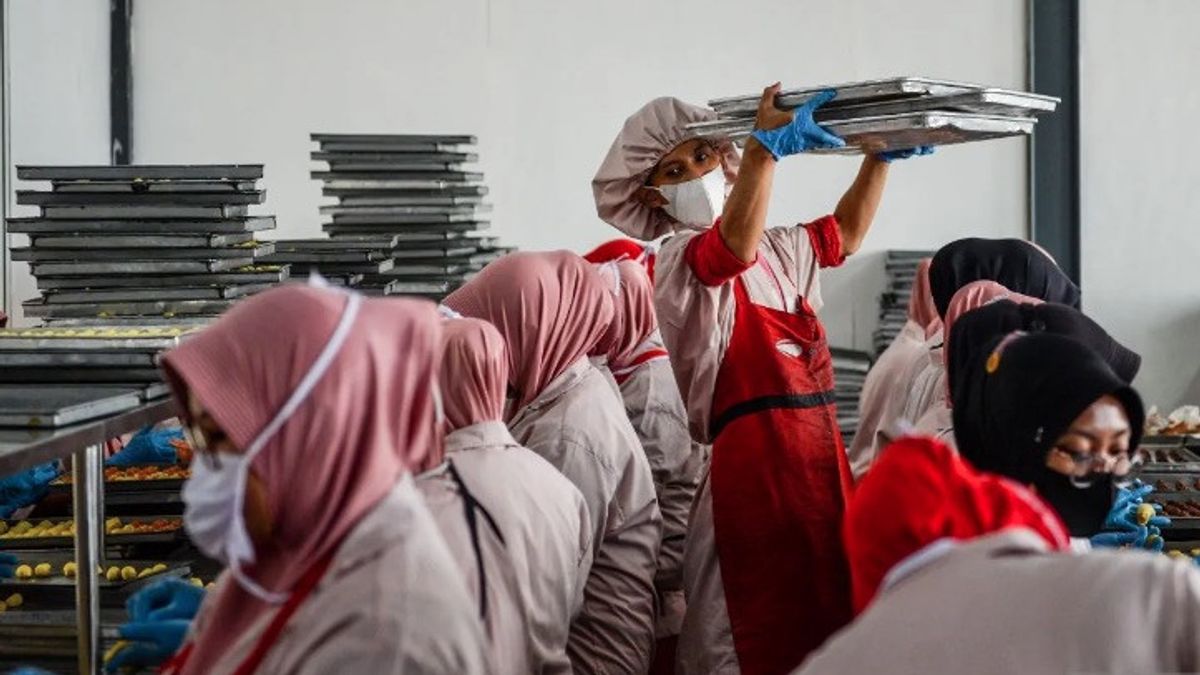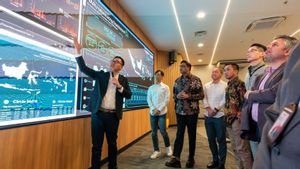JAKARTA – Hashim Djojohadikusumo’s statement targeting that the Indonesian economy could grow by up to nine percent is considered mere bluff by economic observers.
“I am sure it can be more than eight percent. Personally, I can reach 9 percent of the economy. That’s me personally,” Hasim said some time ago.
The statement was made by Hashim Djojohadikusumo as the President’s Special Envoy for Climate during the COP29 event in Baku, Azerbaijan. Hashim also echoed Prabowo’s target that the Indonesian economy would grow by eight percent under his leadership.
Hashim’s confidence regarding Indonesia’s nine percent economic growth is not without reason. According to him, the government now has a number of programs that can help the economy grow higher, including the free nutritious meal program and the construction of three million houses every year.
Daydream
Increasing economic growth has indeed been one of the targets of President Prabowo Subianto and his deputy, Gibran Rakabuming Raka since being elected as leaders of this country for the 2024-2029 period. Prabowo himself once said about the target of eight percent economic growth.
Economic growth can be said to be one of the indicators of the success or failure of a government in running, managing, and developing the country. Quoting Kompas, United States economist Simon Kuznets said economic growth is a long-term ability of a country to provide various economic goods to its population.
Along the way, Indonesia has experienced ups and downs in economic growth. In 1961, during the era of President Soekarno, the Central Statistics Agency recorded Indonesia's economy at 5.74 percent. Although it was minus 2.24 percent, economic growth was able to return to positive at 3.53 percent in 1964.
It was only in the era of President Soeharto that the Indonesian economy grew rapidly. It even reached 10.92 percent in 1970 after creating the Five-Year Development Plan or Repelita which encouraged self-sufficiency.

In the following years until around 1997, Indonesia's economic growth was maintained at around 6-7 percent. In 1998 when the global crisis occurred, inflation reached 80 percent and economic growth dropped to minus 13.13 percent.
After that, in the era of BJ Habibie, Abdurrahman Wahid, Megawati Soekarnoputri, to Susilo Bambang Yudhoyono, economic growth fluctuated to around six percent. In the last 10 years, when Joko Widodo served as president, economic growth could be said to have stagnated at five percent.
Regarding President Prabowo Subianto's target of wanting the economy to grow by eight percent, even Hashim Djojohadikusumo was very confident that it could reach nine percent, Director of the Center of Economic and Law Studies (CELIOS) Nailul Huda said that it was impossible.
"Economic growth of eight percent is a hallucination. Moreover, now it has increased to nine percent, more than a hallucination, a dream, a daydream," said Huda when contacted by VOI.
"What is clear is that the target is unrealistic and Hashim is talking nonsense. In the last 10 years, our economic growth has only been around five percent with various policies ranging from infrastructure to downstreaming," he added.
According to Huda, various policies in the Jokowi era did not have a big impact on economic growth which was still "the same". President Prabowo who wants to continue Jokowi's programs makes this target feel impossible to achieve.
"Even if there is an acceleration program, it is a human resource program which has a long-term impact. Not in one year, two years, or even five years. The impact may only be felt after 15 years. So I think it is very unrealistic," Huda said again.
Develop a Restorative Economy
Contacted separately, CELIOS Executive Director Bhima Yudhistira said the government must first change the economic structure if it wants its economy to grow positively. For now, said Bhima, the economic structure still relies too much on extractives. Countries with extractive-based economic structures find it difficult to become developed countries for several reasons.
First, dependence on prices at the international level, second, environmental damage created, the health impacts of the natural resource exploitation process including mining downstreaming actually reduce the level of labor productivity in the long term.
"Because if the workers are sick, their productivity will decrease," explained Bhima.
According to Bhima, the government must accelerate the energy transition to renewable energy with a larger domestic component. The energy transition to a green economy is said to be able to encourage the creation of jobs for up to 96 million people over the next 25 years.
Second, the government must encourage the development of a restorative economy, namely an economy that is in line with the restoration of nature or the environment. By involving a more inclusive society. Bhima explained that mining downstreaming, nickel did not have a major impact because the Indonesian economy remained at five percent.

"The downstream restorative economy has products such as coffee, fisheries, seaweed, forest products that can be managed sustainably and have added value. Because buyers in many countries currently want environmentally friendly products," he said.
Third, by developing the tourism sector so that it is managed well and has higher competitiveness compared to neighboring countries such as Thailand, Singapore, Malaysia, so that it can bring in foreign exchange and boost the economy at the regional level.
To encourage nine percent growth, Bhima continued, the APBN and its fiscal incentives must be more targeted, must be oriented towards labor-intensive sectors, and create industrialization because the biggest challenge today is premature industrialization.
"So we have to do industrialization but not mining industrialization, because if we still rely on extractive natural resources, no matter how we manage it, the damage value is very large compared to the profits obtained," Bhima explained.
"Finally, building the economy on the outskirts, namely activating business units in rural areas, the agricultural plantation sector with more focused village funds," he concluded.
The English, Chinese, Japanese, Arabic, and French versions are automatically generated by the AI. So there may still be inaccuracies in translating, please always see Indonesian as our main language. (system supported by DigitalSiber.id)








